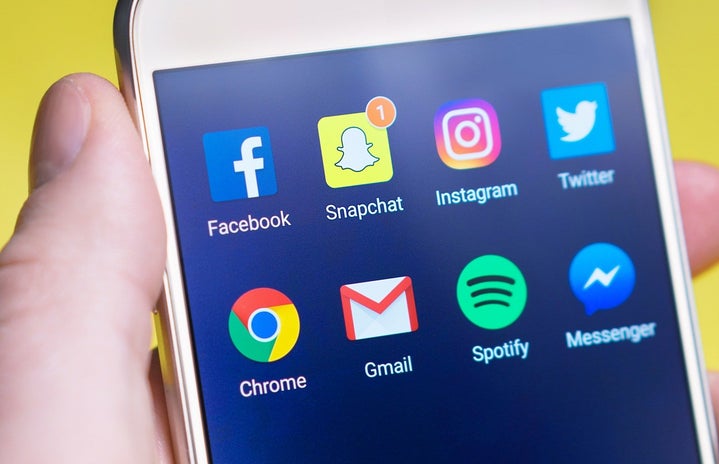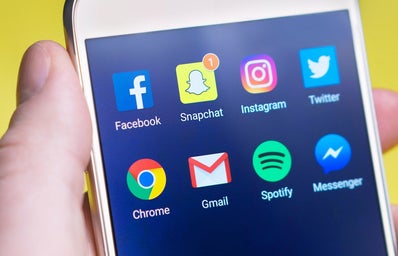Let’s be honest: it’s nearly impossible to live without internet or any kind of social media nowadays, specially if your job depends on that, and that’s not necessarily a bad thing. A lot of relationships started because of the internet — what would modern couples be without Tinder? — and stayed together for the same reason, regardless of the individuals’ location. You can keep in touch with long-distance relatives and connect with people around the world who struggle with the same problems you do. Internet can be awesome, there’s no denial in that.
However, with the massive digitalization the world has been going through for the last decade, it can be really hard to disconnect — but staying connected is also a problem. While an individual desires to stay online all the time, looking at people having fun and going out on social media can become overwhelming, since the viewer is not enjoying the rewarding situation. In that circumstances, people are experiencing negative emotions, such as feeling excluded, out of place, anxiety, lack of concentration and reduced self-esteem. In most severe cases, it can lead to depression.
That is a clear example of Fear of Missing Out, also known as FOMO. Besides the negative feelings listed above, the phenomenon also causes addiction to social media. As soon as someone with FOMO sees people having a good time on the internet, they feel like their life is not as rewarding. Physical symptoms can often be experienced too, such as insomnia, decreased sleep and appetite, fatigue, headaches and chest pains.
A study on FOMO, made by researches of the University of Houston, recruited 386 university students who tend to check their social media a lot of times daily. Long story short, the result indicates that people with FOMO often experience more physical and depressive symptoms. Besides, they don’t have a good outcome on mindful attention.
The FOMO situation can be even more complicated now, after quarantine. We spent months locked in our houses and became used to not seeing people hanging out on social media. Now, we are supposed to return to “normal life” — if anyone even knows what that means anymore. It is not uncommon to see people always up for anything, anytime. Seems like they are willing to regain the lost time, and that’s nothing wrong with that.
However, the anxiety seems to get bigger when seeing friends’ Instagram stories filled with fun videos of people at parties the viewer was not invited to. Maybe someone were having a nice and relaxed day at home, watching some Netflix show. Maybe they were quite alright with the way things were going so far; but as soon as they see people having experiences they are not having, everything gets worse. They feel bad, excluded, anxious and just really sad. This is what it feels like dealing with FOMO.
A study, published by the researchers Fabio Sabatini and Francesco Sarracino, proves that there’s a reason for that: social media causes us to compare ourselves to others. “Our results suggest that (Social Network Site) users have a higher probability to compare their achievements with those of others.”
Therefore, there is no need to pretend that we don’t care about status or what people think about us. We do. Most of us want to have nice things and friends, be successful at our jobs and, most importantly, be liked. When you look at it that way, FOMO seems pretty understandable, huh?
And it is. You just have to learn how to deal with that. I’m not going to tell you to stop worrying about people’s opinion. Just know that, more often than not, things are not that fun. Have you ever thought that maybe your FOMO comes from thinking that everybody is having a better time than you when, in reality, it is not always like that?
When FOMO starts to overwhelm you, try to think about all the nice things you had during your day. Would it really have gone better if you were with a bunch of other people that, in some cases, you don’t even know that well? Things will begin to get better once you realize that you are a great company to yourself, too. Hanging out with others is great, but while hanging out with yourself, you don’t have to worry about a lot of things. There’s no reason to fake a laugh or pretend to like someone you can’t stand.Digital wellness can be hard to achieve, but not impossible. Appreciate your own company more. Take yourself to dates, cook something you like, exercise, go to the movies. Once you realize you can be your greatest friend, you won’t feel all that anxiety when seeing people having fun, because you are too.


